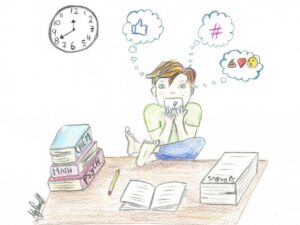Discover How Tapping into Music can Benefit Your Child’s Development.

Discover How Tapping into Music can Benefit Your Child’s Development.
Music can play an important role in your child’s growth, even before birth.
Exposing your child to music ignites all areas of child development.
And doing this early can help ensure that your baby grows up healthy.
Did you know a lullaby will make your baby calmer because it slows down her heart?
Music is the most important thing in our life.
Is your baby getting enough music?
According to Dr. Ibrahim Baltagi here are some of the vital things you need to know about music and child development.
What effect does music have on babies in the womb?
- It is proven that music has a role in brain development before birth.
- Listening to music during pregnancy will not only have a soothing and uplifting effect on the pregnant woman, but also a positive influence on the unborn baby.
- Around 16─18 weeks of pregnancy, the little one hears its very first sound.
- By 24 weeks, the little ears start to develop rapidly and babies have been shown to turn their heads in response to voices and noise in the last few months of pregnancy, an unborn baby can recognize her mother’s voice, her native language, word patterns and rhymes.
What music should a pregnant mother listen to?
- In the third trimester, the baby will be definitely able to hear the music you play.
- Classical music, gentle sounds like lullabies, nice melodies that inspire happiness all are designed to be soothing.
How can music help develop a young child’s brain?
- Music ignites all areas of child development and skills for school readiness, particularly in the areas of language acquisition and reading skills.
- Learning to play a musical instrument can improve mathematical learning, and even increases school scores.
Also Read: The Science of Playing Among Children.
How can you use music to soothe your baby to help her sleep?
- Music inspires emotions, so music can be a popular recommendation to soothe the little one peacefully. And it is a welcome addition to the baby’s sleep routine.
- The music must be soft, soothing, relaxing, to create a calm atmosphere to nurture their sleeping patterns.
- A familiar tune or music or song becomes like a session of music therapy. Slow, soft, repetitive music will actually slow down the heartbeat and allows for calmer and deeper breathing.
- Don’t underestimate the power of the mother, father or any caregiver’s voice while singing. Her voice is familiar and the rhythm is calming.
Where do lullabies come from?
- The English word “lullaby” is thought to come from the “lala” or “lulu” sounds made by mothers or nurses to calm children.
- “Bye” is another lulling sound, or a term to say “goodnight”. A lullaby, or so-called cradle song, has a story to soothe babies and small children to sleep.
- Lullabies are found in every culture and sung in every language. Brahms’ Lullaby is perhaps the most well-known and easily recognizable of the cradle songs.
What are the best musical instruments for toddlers?
- There are many ways in which you can create music with your child for free. Vocal chords are the only innate instruments that are created in a human being.
- There are other instruments that we can use, which is percussion like clapping, snapping, stomping and patting on your thighs.
- Also, there is tons of stuff around your home such as if you get a wooden spoon and play it on a pot, you can play it with your child.
- The best musical instruments you can buy for your children would include toy drum, shakers or rattles, glockenspiel, xylophones, maracas.
Can music help your child socialize?
- There’s something about listening to music or playing it with other people that brings its own social buzz, making you feel connected to those around you.
- Music at early ages helps children express themselves and share feelings.
- Even at an early age, they can sway, bounce, move their hands in response to music they hear.
- They can even make up their own songs.
- They learn to laugh, repeat words and it encourages them to use these words and memorize them.
- We have learned about several mechanisms through which music impacts our ability to connect with one another by impacting brain circuits involved in empathy, trust and cooperation, perhaps explaining how it has survived in every culture of the world.
Do you know, there is plant for each type of stomach problem?
Music is present in our lives, in so many aspects.
At home, music can become part of our everyday experiences.
From birth, parents use music to calm and soothe children, to express their love, joy, and to engage and interact.
Parents can build on these natural instincts by learning how music can impact child development, improve social skills, and benefits kids of all ages.
My advice is to start music with your children as early as possible.
Join the Enlighten Knowledge WhatsApp platform.
Or
Join the Enlighten Knowledge Telegram platform.







The very root of your writing whilst appearing agreeable in the beginning, did not work very well with me personally after some time. Somewhere throughout the paragraphs you actually managed to make me a believer unfortunately just for a short while. I however have a problem with your leaps in logic and one would do nicely to fill in those breaks. In the event that you actually can accomplish that, I would surely be impressed.
I’ve been exploring for a little for any high-quality articles or weblog posts on this sort of space . Exploring in Yahoo I ultimately stumbled upon this site. Studying this information So i am happy to express that I have a very good uncanny feeling I found out just what I needed. I most indisputably will make sure to do not overlook this website and give it a look regularly.